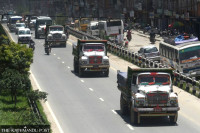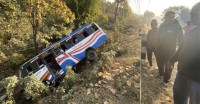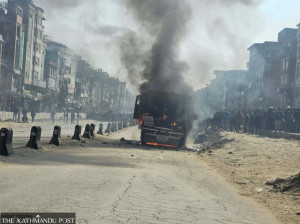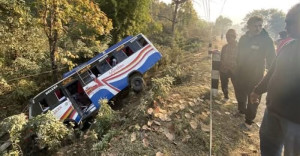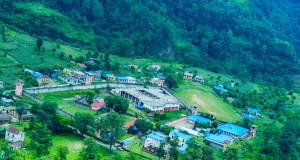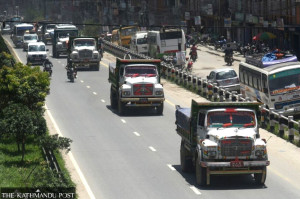Bagmati Province
Patients in Hetauda face difficulties finding an ambulance for long routes
Ambulance drivers have been refusing to offer services on long routes since their demand for a revision in the transport fare is yet to be addressed, locals say.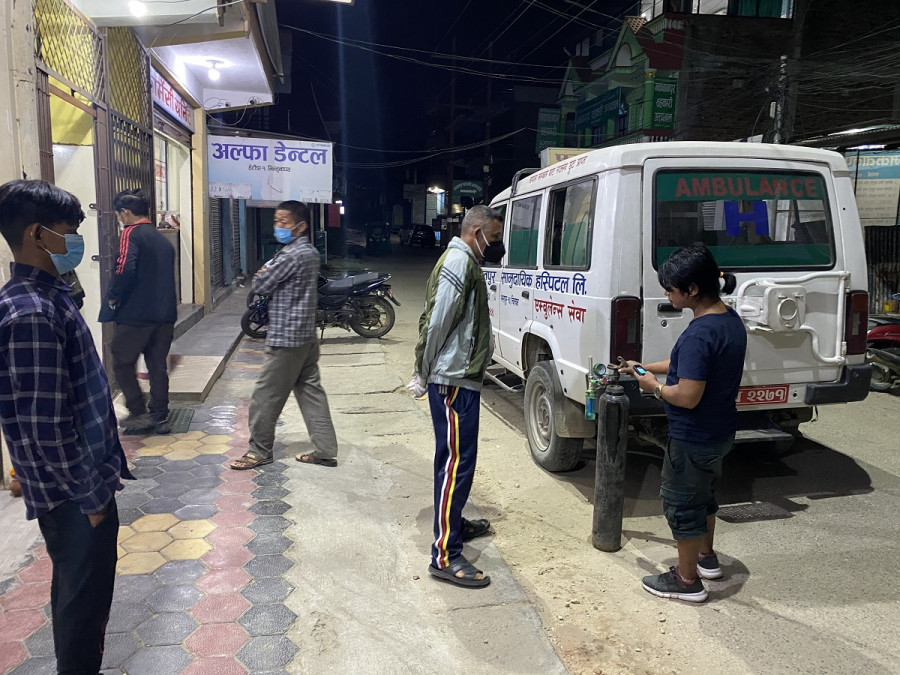
Subash Bidari
Three days ago, 40-year-old Man Kumari Khusawar, a local of Chandrapur Municipality in Rautahat, visited a hospital in Hetauda seeking treatment for stomach-related problems. She was referred to Kathmandu for further treatment.
Throughout Thursday, her family looked for an ambulance to bring her to Kathmandu-based Shahid Gangalal National Heart Centre since she was diagnosed with a heart ailment at the Hetauda hospital. At around 11pm, the family got an ambulance which agreed to drop the patient to Chitwan.
“None of the ambulance drivers in Hetauda wanted to go on a long-distance route. We had to seek help from the police to have one driver agree to take us at least halfway till Chitwan,” said Khuswar’s son Aakash.
According to him, over a dozen ambulance drivers refused to take his sick father to Kathmandu.
“We then took another ambulance from Chitwan and reached Kathmandu on Friday,” he said.
Ambulance operators have been refusing to offer services on long-distance routes since their demand for a revision on the transport fare is yet to be addressed.
A committee led by Chief District Officer of Makwanpur Govinda Prasad Rijal has been formed to monitor the operation and coordination of ambulance facilities in the district.
The committee has directed ambulance operators to continue their service while the local administration holds discussions to address their demands.
“At a recent meeting, I had directed the District Health Office to take necessary steps and coordinate with ambulance operators to ease the facility,” said Rijal. “Ambulance fares have not been revised for the last nine years. We are aware of that and we are working towards revising the fares but given the pandemic, we will not be able to do it anytime soon.”
On Friday, a 19-year-old man of Ward No. 10 in Hetauda fell violently ill after consuming poison. He was referred to a hospital with ICU and ventilator facilities in Bharatpur. But none of the ambulances in Hetauda were ready to take him to Bharatpur. The locals arranged for a public vehicle to take him to the hospital.
Bikeshlal Shrestha, a local of Hetauda who has been campaigning for easy access of health services to the locals, said: “There are enough ambulances in Hetauda but not a single one is available when you need them. Many Hetauda locals have lost their lives because they weren’t taken to a hospital on time.”
According to him, ambulance drivers make quick money if they provide their services within the sub-metropolis and are therefore reluctant to cover long-distance routes.
“If a patient is to be taken to Kathmandu or Bharatpur from here, they demand more transport fares. If a service seeker wants to pay the fare decided by the government, the ambulance driver refuses to go.”
The Chief District Office has received several complaints from the locals about the unavailability of ambulance services in the sub-metropolis.
“The complaints have increased especially in the last few months due to the Covid-19 pandemic. Ambulances in Hetauda charge up to Rs 13,000 for a trip to Kathmandu and Rs 7,000 to Bharatpur,” said CDO Rijal.
As a temporary measure, the local administration has allowed ambulance drivers to charge Rs 1,000 as an extra allowance for a one-way trip to Kathmandu and Rs 500 to Bharatpur, said Rijal.
There are 31 ambulances operating in Makwanpur district. Under the current rate fixed by the District Administration Office, ambulances can charge Rs 7,500 for ferrying a patient to Kathmandu, Rs 3,000 to Chitwan, Rs 2,000 to Birgunj and Rs 300 within Hetauda. They can also charge Rs 25 per kilometre travelled beyond the Hetauda Bazaar area.
Janardan Nepal, chairman of the Ambulance Driver Committee in Makwanpur, says fare is not the issue for them.
The pandemic is keeping ambulances busy within the city limits and therefore they haven’t been able to ferry patients who need to be taken outside the district.
“We receive complaints about unavailability of ambulances in the district. The local authorities should install GPS on ambulances and monitor their locations. They will see that most of the ambulances are providing services within the district,” he said. “Yes, we do have our demands but given the difficult times, we will do as directed by the local administration.”




 14.24°C Kathmandu
14.24°C Kathmandu
